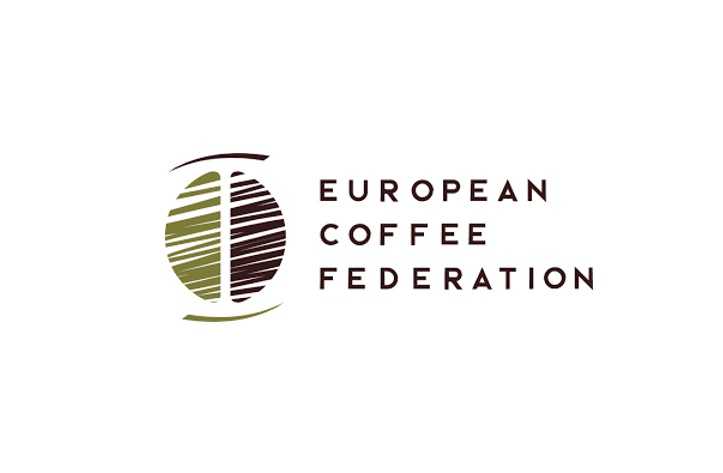The European Coffee Federation, the umbrella organization of the European Coffee Trade and Industry, shared sincere concerns regarding the imminent implementation of EUDR. They wrote a letter to Ursula von der Leyen, President of the European Commission, who stressed in her new political guidelines a stronger engagement with partners impacted by European legislation, particularly those initiatives linked to the European Green Deal
The following letter has been co-signed by coffee producing countries, civil society and the European coffee trade and industry. A unique joint advocacy effort. Below, we share their signed letter.
The European Coffee Federation letter to Ursula von der Leyen
“Dear President von der Leyen,
We, the undersigned organizations, represent the entire coffee supply chain, accounting for over 90% of the coffee imported, manufactured, sold, and exported in/from the EU annually. We are fully committed to the successful implementation of the EU Deforestation Regulation (EUDR) and have already dedicated significant resources to minimize and mitigate the risk of deforestation in the coffee supply chain.
However, our efforts to comply with the EUDR have revealed several critical issues that threaten our ability to meet the regulation’s objectives effectively and without unintended consequences for smallholder coffee farmers and smaller companies. We respectfully seek your urgent intervention to address the following concerns, no later than October 2024.
- Availability of EU Compliance Tools:
- Deficient Information System (IS): The IS needs a second round of testing with the business We request it be fully operational by early October. This is crucial as this year’s coffee shipments to Europe are underway, and operators need time to adapt their systems and upload the necessary information into the IS.
- Access for Non-EU Operators: To prevent trade barriers and supply chain disruptions, we request full IS access for non-EU operators, especially those in Switzerland and the
- Clarity on GDPR Compliance:
- We require clear guidelines on protecting coffee farmers’ data along the supply chain and managing commercially confidential information disclosed to downstream operators and the
- Harmonized Implementation Guidance:
- The Guidance document and new FAQ updates should provide timely, clear responses to questions raised by targeted This will help harmonize and clarify the EUDR’s interpretation and operational implementation.
- Operational Benchmarking System:
- The country benchmarking system must be completed before the EUDR comes into effect on 30.12.2024. A delay would default all countries to “standard risk,” imposing full due diligence obligations. Timely completion of the benchmarking system is essential for clarity in the supply chain. At the very least, countries (or parts thereof) considered as ‘low risk’ should be identified to enable companies to conduct simplified due diligence and allow competent authorities to implement their risk-based enforcement The producing countries extension and regional idiosyncrasies should also be considered when making an assessment to ensure the representativeness of the benchmarking.
- Alignment with Legality Requirements:
- The EUDR’s legality requirements should align with those of the Corporate Sustainability Due Diligence Directive (CS3D). The forthcoming EUDR Guidance document needs to clarify this We need explicit guidance on collecting verifiable information regarding coffee production compliance with the country of origin’s legislation.
- Streamlined Due Diligence for Downstream Operators/Traders:
- To avoid duplication, a single due diligence statement upon green coffee market entry should suffice for all imports/exports. We request that a single due diligence statement and its reference number be considered sufficient for EUDR
- Exemption for Green Coffee Stocks Already Purchased:
- Significant volumes of green coffee, purchased and transported to non-EU countries before the transition period’s end, should be exempt from the DDS Finished products made from such green coffee should also be exempt to avoid trade barriers.
In summary, the coffee sector urgently requests the European Commission to address key challenges in the EUDR implementation, no later than October 2024: finalize the Information System (IS) and grant access to non-EU operators, provide clear GDPR compliance guidelines, offer harmonized implementation guidance, complete the country benchmarking system before EUDR’s enforcement, align EUDR legality requirements with CS3D, streamline due diligence processes to avoid duplication, and exempt green coffee stocks already purchased during the transition period from DDS requirements.
Effective collaboration with producing countries is essential to meet these demands and ensure the regulation’s successful implementation without unintended consequences.
To ensure effective compliance and address these concerns, we request the establishment of a permanent platform for dialogue between the European Commission and the coffee sector. This will facilitate ongoing collaboration to resolve current issues and any that arise during the transition period.
Closer, structured, detailed, and timely exchanges between the European Commission, particularly DG ENV and the Competent Authorities of the Member States, and the coffee supply chain are crucial to reduce bureaucracy and scale up cooperation with producing countries.
The coffee value chain remains fully committed to the spirit of the EUDR and will continue to work towards achieving the overall objectives set out by the European Commission. We aim to do so without the unintended consequences, particularly for smallholder farmers, who represent 82% of all coffee farmers in over 60 countries.
We will continue to collaborate and support coffee-producing countries in Africa, Asia, and Latin America. These countries are facing challenges in understanding, implementing and affording the generation of accurate geocoordinates, enhancing product traceability, and producing the necessary supporting documentation to meet all compliance requirements within a very short period.
We share the European Commission’s vision for environmental sustainability. However, achieving these ambitions requires collaboration and a realistic timeframe. It is crucial to avoid creating a two-tier market and ensure that no loopholes exist that could lead to overproduction in low-risk areas.
We appreciate your attention to these matters and kindly request a meeting between the Commission Services responsible for implementation and coffee supply chain representatives to address our concerns.
Yours sincerely,
World Coffee Producers Forum, ASEAN Coffee Association, CECAFE (Brazil), Asoexport (Colombia), Coffee Industry Corporation PNG (Papua New Guinea), Uganda Coffee Federation, Global Coffee Platform, European Coffee Federation


















